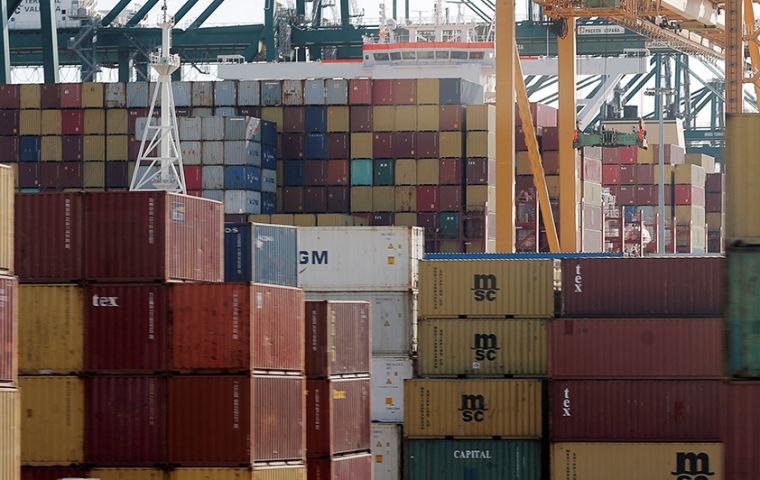MercoPress. South Atlantic News Agency
Brazilian industry and unions request suspension of Mercosur talks on reducing the Common External Tariff
 Brazil will take over the rotating chair of Mercosur this month for the second half of 2021
Brazil will take over the rotating chair of Mercosur this month for the second half of 2021 The Brazilian Confederation of Industry, CNI and the IndustriALL-Brasil (which represents industry unions) have officially requested that in the next Mercosur meeting, scheduled for early this month, Brazilian representatives withdraw the proposal for a reduction of block trade tariffs with other countries. However, both institutions also backed the current flexibilization of current trade talks with third countries, such as South Korea.
According to the CNI and IndustriALL-Brasil release, “the unilateral reduction of tariffs at this moment will reinforce an existing non-isonomic competition because of the chronic competitiveness problems of Brazil which have not been addressed”. Besides that ”individual trade negotiations also mean the challenge of weakening the block and its bargaining power in negotiations when it comes to open markets for partners with disloyal practices and which represent an effective threat to the production and employment of the country.
The rotating Mercosur chair is currently held by Argentina, but this month must be transferred to Brazil.
The letter follows:
Mercosur is celebrating its thirtieth anniversary at a very difficult moment. The economic and social impacts of the pandemic add to a division among the governments of the block in strategic matters, a possible review and/or reduction of the Common External Tariff (TEC) and the negotiation of trade accords with different chronograms or even individually, with other countries or blocks, which is aggravated by the fact that some of those partners do not comply with minimum labour and environment rules.
On the one side, the unilateral reduction of tariffs, at this moment, would strengthen an existing non-isonomic competition because of the chronic competitiveness problems of Brasil, which have not been equated.
On the other, individual trade negotiations mean both the challenge of weakening the block and its bargaining power in negotiations referred to the opening of markets for partners with disloyal practices which represent an effective threat to the production and employment in the country. These points would deepen the international integration pattern of the country based on products with little added value and would harm the production chains of the region in which Brazilian companies are involved, such as steel, machinery, cars, pharmaceutics among others.
Redressing and not reinforcing this de-industrialization trajectory is necessary to insert the Brazilian economy in activities of greater added value and greater technological content, which have created more companies demanding better qualified and better-paid workers.
The government's position has been consolidating for almost two years, without presenting a clear project, or consistent consultations with representatives of the different industrial segments and the workers on the evaluation of well-fundamental impacts.
Taking into account the serious and uncertain economic and social effects which that such agenda might cause, the entities representing the companies and workers of the Brazilian industry request that in the next Mercosur ministers meeting, the Brazilian government suspends its current position sustained on those issues, and proposes to the partner countries a more deep evaluation on TEC and the negotiation policy with third countries, opening a dialogue table with the Brazilian worker's unions and companies.




Top Comments
Disclaimer & comment rulesCommenting for this story is now closed.
If you have a Facebook account, become a fan and comment on our Facebook Page!